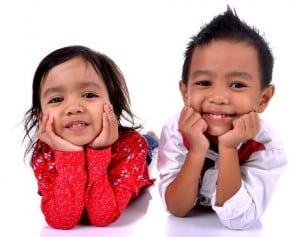
The researchers evaluated 65 preschool-aged children’s ToM skills and their ability to learn new words. Theory of mind is the ability to understand other people’s mental states. To test ToM, the researchers introduced the children to several figurines, each with a name and a characteristic. They asked the children to theorize about the characters. For example, the children were told that Mr. Jones likes carrots and then asked to predict what Mr. Jones might want to eat. The researchers next tested whether the children were more likely to learn new words from an accurate or inaccurate individual. They also tested whether the children were more likely to learn from a physically strong or physically weak individual.
The children with who could accurately intuit the thoughts and desires of the figurines (indicating strong ToM skills) were more likely to believe individuals with the greatest verbal accuracy. They were not as likely to believe those with greater physical strength. In short, the researchers found that children with better ToM were less gullible than their peers.
The findings account for only a small amount of children’s learning preferences, explains first author of the study Patricia Brosseau-Liard. “Even though theory of mind does predict children’s tendency to selectively learn from more accurate individuals, it does not completely explain this ability. There are likely many other variables influencing selective learning, including important social and cognitive attributes.”
This research is published in the British Journal of Developmental Psychology.
Previous news in pediatric psychology:



 © 2025 Unyte Health US Inc.
© 2025 Unyte Health US Inc.